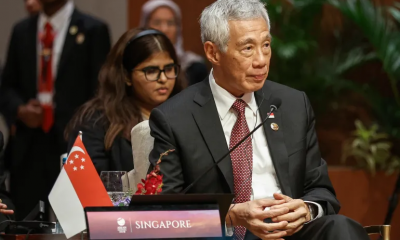Latest News
Tharman Shanmugaratnam: Singapore picks a president who could’ve been much more
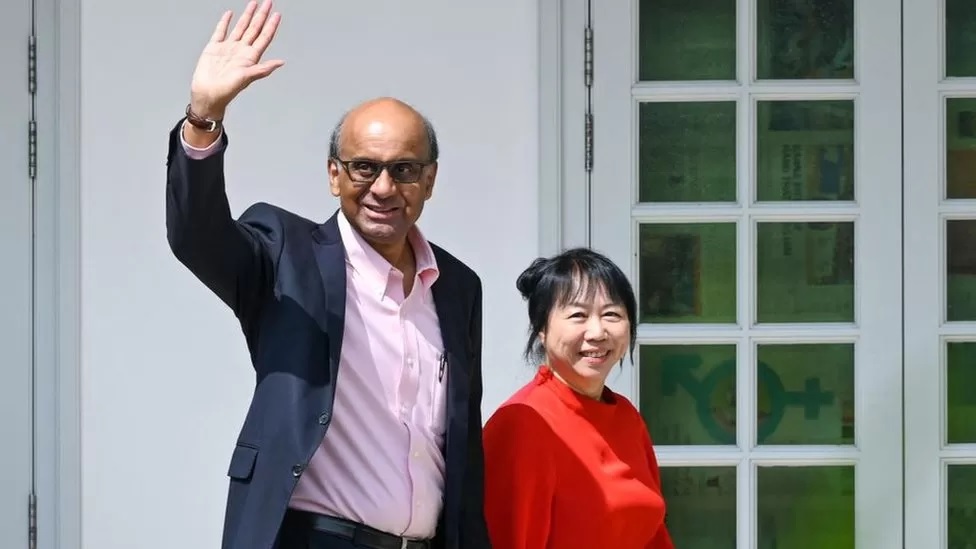
Singaporeans have chosen Tharman Shanmugaratnam as their next president – but many would have let out a small sigh of disappointment as they did so.
On Friday, the former top minister won a record 70.4% of the votes, comfortably beating two other candidates in the country’s first contested presidential election in more than a decade.
Tharman Shanmugaratnam was always the clear front-runner. Urbane, well-spoken and intelligent, he is highly regarded by Singaporeans and consistently polls as one of the island’s most popular politicians. Which was why, when he announced several months ago he was quitting the ruling People’s Action Party (PAP) to run for president, many Singaporeans were baffled by what they viewed as a waste of his potential.
The role of president is a largely ceremonial one that holds little power, apart from having some say on the use of Singapore’s sizeable financial reserves. It has even less say in public affairs – the government, which has the power to remove the president, has made it clear the president cannot speak too freely and has likened the role to the British monarch.
It is a figurehead role that many see suitable for a pleasant, uncontroversial person to inhabit, as has been the case with past presidents. But Tharman Shanmugaratnam is much more than that.
Besides helping to helm Singapore’s political leadership as finance minister and deputy prime minister, the former economist has also held top council positions at global institutions such as the United Nations and the International Monetary Fund (IMF). At one point, he was even tipped to head the IMF.
Some Singaporeans thought that if he ever left the PAP, he would go on to make his mark in the international arena. Even more hoped he could be prime minister. A survey some years ago saw him poll as the first choice to become PM after incumbent Lee Hsien Loong steps down. In general elections, Mr Tharman’s constituency often scores the highest after Mr Lee’s.
Part of this popularity stems from the fact that as a long-time deputy, Mr Tharman’s reputation has been shielded from the slings and arrows of public criticism which Mr Lee has had to bear.
But the 66-year-old has also cultivated a gentlemanly image, and has refrained from engaging in personal attacks unlike some other politicians. This has played well with an electorate that likes its leaders genteel and statesmanlike. Many felt he had the chops and stature to become that almost mythical creature – the first non-Chinese prime minister of Singapore – and break a glass ceiling that the government has long insisted is concrete. Famous for their racial realpolitik, PAP leaders often reiterate that Singapore, a Chinese-majority country, is not ready to accept a minority PM.
Mr Tharman kept mum on this topic until last week when he said he felt Singapore was ready, sharpening the sting of disappointment among his supporters. But Mr Tharman has also insisted he would not be good at being PM and with the PAP’s new leadership waiting in the wings, it could be said he was already on his way out. One theory is the PAP wanted him to run for president to help shepherd the next generation of leaders. And so, he chose to run for president instead. Although Singapore has had non-Chinese presidents in the past, Mr Tharman is the first one voted in by the public.
His supporters could claim his victory as a win for representation and a repudiation of racism. In the lead-up to the election, some social media posts insisted that Singapore must have Chinese leaders. Mr Tharman’s two competitors were both Chinese.
(BBC)
Latest News
President Disanayake, Japanese Ambassador discuss bilateral cooperation

President Anura Kumara Disanayake met with Ambassador of Japan to Sri Lanka, H. E.. Akio ISOMATA, this morning (27) at the Presidential Secretariat.
During the meeting, the Ambassador officially invited President Disanayake to visit Japan and expressed appreciation for the new government’s policy framework.
The Japanese Ambassador stated that efforts have been made to include Sri Lanka in the recently launched security cooperation assistance program by the Government of Japan.
Extensive discussions were held regarding the ongoing and future initiatives of the joint Japan-Switzerland-South Africa program aimed at fostering national reconciliation among the northern communities affected by the 30-year conflict. Additionally, they reviewed the current status of Japanese investments in Sri Lanka.
Furthermore, the current status and progress of digital economic and airport investments were discussed. The Ambassador also reaffirmed Japan’s commitment to supporting Sri Lanka’s Digital Transformation Program, emphasizing the Government of Japan’s intention to invest in port and aviation-related projects, as well as digitalization initiatives in Sri Lanka.
The discussion was attended by Advisor to the President on Economic and Financial Affairs Dr. Duminda Hulangamuwa, Senior Additional Secretary to the President Roshan Gamage, First Secretary & Head of Economics and Development Cooperation Section OHASHI Kenji, and First Secretary & Head of Political Section MURATA Shinichi.
Foreign News
Thailand deports dozens of Uyghurs to China
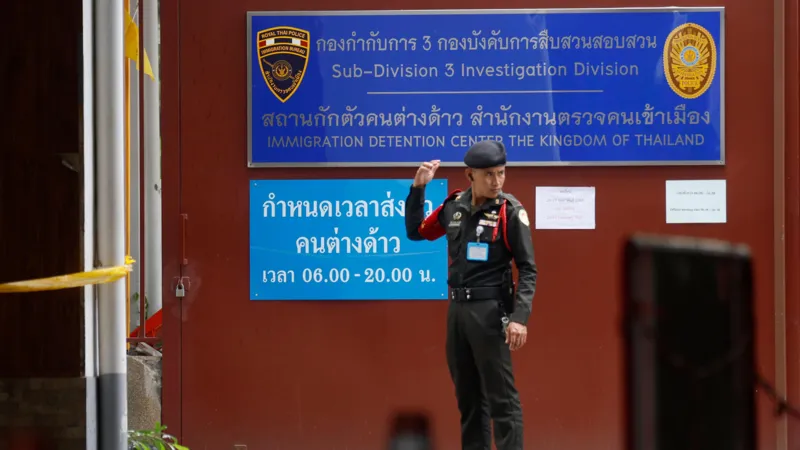
At least 40 Uyghurs have been deported to China, the Thai authorities have confirmed, despite warnings from rights groups that they face possible torture and even death.
The group is thought to have been flown back to China’s Xinjiang region on Thursday, after being held for 10 years in a Bangkok detention centre.
China has been accused of committing crimes against humanity and possibly genocide against the Uyghur population and other mostly Muslim ethnic groups in the north-western region of Xinjiang. Beijing denies all of the allegations.
It is the first time Thailand has deported Uyghurs since 2015.
The deportation has been shrouded in secrecy after serious concerns were raised by the United States and United Nations.
Thai media reported that several trucks, some with windows blocked with sheets of black plastic, left Bangkok’s main immigration detention centre in the early hours of Thursday morning.
Hours later, tracker Flightrader24 showed an unscheduled China Southern Airlines flight leaving Bangkok, eventually arriving in Xinjiang. It was not immediately clear how many people had been deported.
The Thai defence minister told Reuters news agency that Beijing had given assurances the deportees would be looked after.
Beijing said that 40 Chinese illegal immigrants were repatriated from Thailand, but refused to confirm that the group were Uyghurs.
“The repatriation was carried out in accordance with the laws of China and Thailand, international law and international practice,” the foreign ministry said.
Chinese state media said the group had been bewitched by criminal organisations and were stranded in Thailand after illegally leaving the country.
Thailand’s Prime Minister Paetongtarn Shinawatra did not initially confirm any deportations had taken place when asked by reporters.
“In any country in the world actions must adhere to the principles of law, international processes, and human rights,” she said.
The group is thought to be the last of more than 300 Uyghurs who were detained at the Thai border in 2014 after fleeing repression in Xinjiang.
Many were sent to Turkey, which usually offers Uyghurs asylum, while others were deported back to China in 2015 – prompting a storm of protest from governments and human rights groups.
“What is the Thai government doing?” asked opposition lawmaker Kannavee Suebsang on social media on Thursday.
“There must not be Uyghur deportation to face persecution. They were jailed for 11 years. We violated their human rights for too long.”
The detention centre where the Uyghurs – who had been charged with no crime, apart from entering Thailand without a visa – were kept was known to be unsanitary and overcrowded. Five Uyghurs died in custody.
In a statement on Thursday, Human Rights Watch said the group now face a high risk of torture, enforced disappearance and long-term imprisonment.
“Thailand’s transfer of Uyghur detainees to China constitutes a blatant violation of Thailand’s obligations under domestic and international laws,” said the organisation’s Asia director, Elaine Pearson.
“Until yesterday [Wednesday], senior Thai officials had made multiple public assurances that these men would not be transferred, including to allies and UN officials.”
Phil Robertson, director of the Asia Human Rights and Labour Advocates (AHRLA) group, said that the deportations “totally destroyed” the “charade” that the current Thai government was different to the previous one “when it comes to transnational repression and cooperating with authoritarian neighbours”.
Amnesty International described the deportations as “unimaginably cruel”.
Bipartisan members of the US House China Committee on Wednesday issued a statement warning that the deportations “would constitute a clear violation of international human rights norms to which the Kingdom of Thailand is obligated under international law”.
The UN said that it “deeply regrets” the deportations.
There are about 12 million Uyghurs, mostly Muslim, living in Xinjiang, which is officially known as the Xinjiang Uyghur Autonomous Region (XUAR).
The Uyghurs speak their own language, which is similar to Turkish, and see themselves as culturally and ethnically close to Central Asian nations. They make up less than half of the Xinjiang population.
Recent decades have seen a mass migration of Han Chinese (China’s ethnic majority) into Xinjiang, allegedly orchestrated by the state to dilute the minority population there.
China has also been accused of targeting Muslim religious figures and banning religious practices in the region, as well as destroying mosques and tombs.
[BBC]
Foreign News
Gene Hackman and his wife found dead at their home
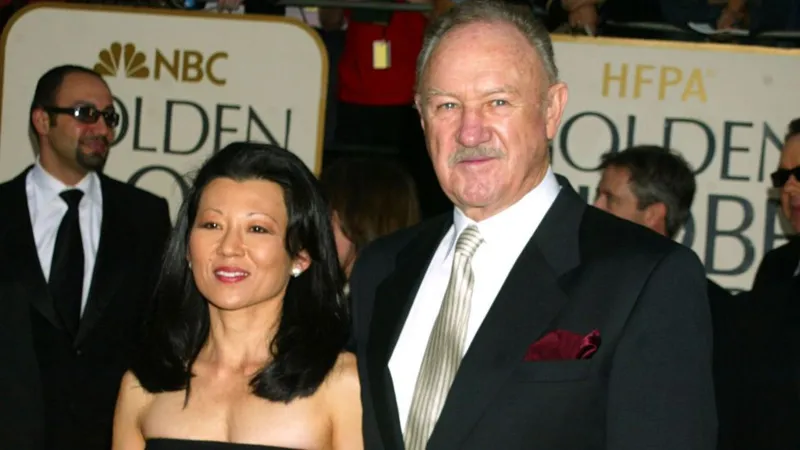
Oscar-winning US actor Gene Hackman and his wife Betsy Arakawa have been found dead at their home in Santa Fe, New Mexico.
In a career that spanned more than six decades, he received two Academy Awards, two Baftas, four Golden Globes and a Screen Actors Guild Award.
A statement from the Santa Fe County Sheriff in New Mexico said: “We can confirm that both Gene Hackman and his wife were found deceased Wednesday afternoon at their residence on Sunset Trail.
“This is an active investigation – however, at this time we do not believe that foul play was a factor.”
Hackman won the best actor Oscar for his role as Jimmy “Popeye” Doyle in William Friedkin’s 1971 thriller The French Connection, and another for best supporting actor for playing Little Bill Daggett in Clint Eastwood’s Western film Unforgiven in 1992.
His other Oscar-nominated roles were in 1967 movie Bonnie and Clyde – as Buck Barrow in his breakthrough role – and 1970’s I Never Sang for My Father, as well as playing the agent in Mississippi Burning (1988).
Santa Fe County Sheriff Adan Mendoza confirmed the news to local media just after midnight on Wednesday that the couple had died, along with their dog.
The news was later confirmed to the Press Association news agency. Hackman was 95 and his wife 63.
Mr Mendoza said there was no immediate indication of foul play.
But he did not provide a cause of death or say when the couple might have died.
“All I can say is that we’re in the middle of a preliminary death investigation, waiting on approval of a search warrant.”
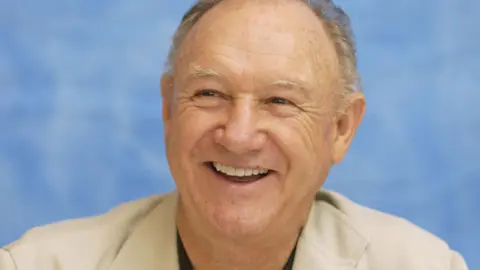
Much celebrated actor Hackman played more than 100 roles including Lex Luthor in Superman movies in the 1970s and 1980s.
He also starred in the hit movies Runaway Jury and The Conversation, as well as Wes Anderson’s The Royal Tenenbaums.
His last big screen appearance came as Monroe Cole in Welcome to Mooseport in 2004.
Born in California in 1930, Hackman had enlisted in the army after lying about his age at 16, serving for four-and-a-half years.
Following his military service, after briefly living in New York he decided to pursue acting.
In order to pursue his chosen career, Hackman joined the Pasadena Playhouse in California, where he befriended a young Dustin Hoffman.
“I was trained to be an actor, not a star. I was trained to play roles, not to deal with fame and agents and lawyers and the press,” he once said.
“It really costs me a lot emotionally to watch myself on-screen. I think of myself, and feel like I’m quite young, and then I look at this old man with the baggy chins and the tired eyes and the receding hairline and all that.”
[BBC]
-

 Business4 days ago
Business4 days agoSri Lanka’s 1st Culinary Studio opened by The Hungryislander
-

 Sports5 days ago
Sports5 days agoHow Sri Lanka fumbled their Champions Trophy spot
-
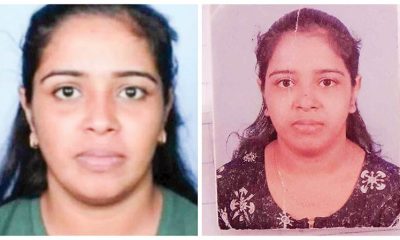
 News7 days ago
News7 days agoKiller made three overseas calls while fleeing
-

 News6 days ago
News6 days agoSC notices Power Minister and several others over FR petition alleging govt. set to incur loss exceeding Rs 3bn due to irregular tender
-

 Features5 days ago
Features5 days agoThe Murder of a Journalist
-
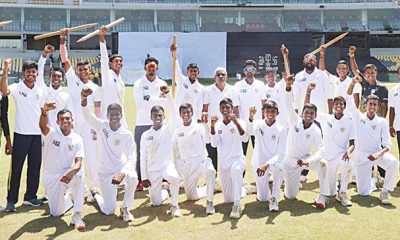
 Sports5 days ago
Sports5 days agoMahinda earn long awaited Tier ‘A’ promotion
-
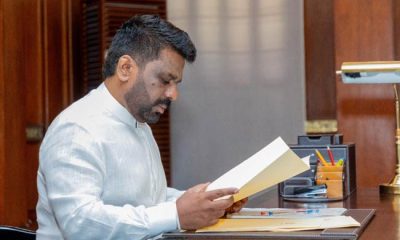
 Features5 days ago
Features5 days agoExcellent Budget by AKD, NPP Inexperience is the Government’s Enemy
-

 News6 days ago
News6 days agoMobile number portability to be introduced in June


